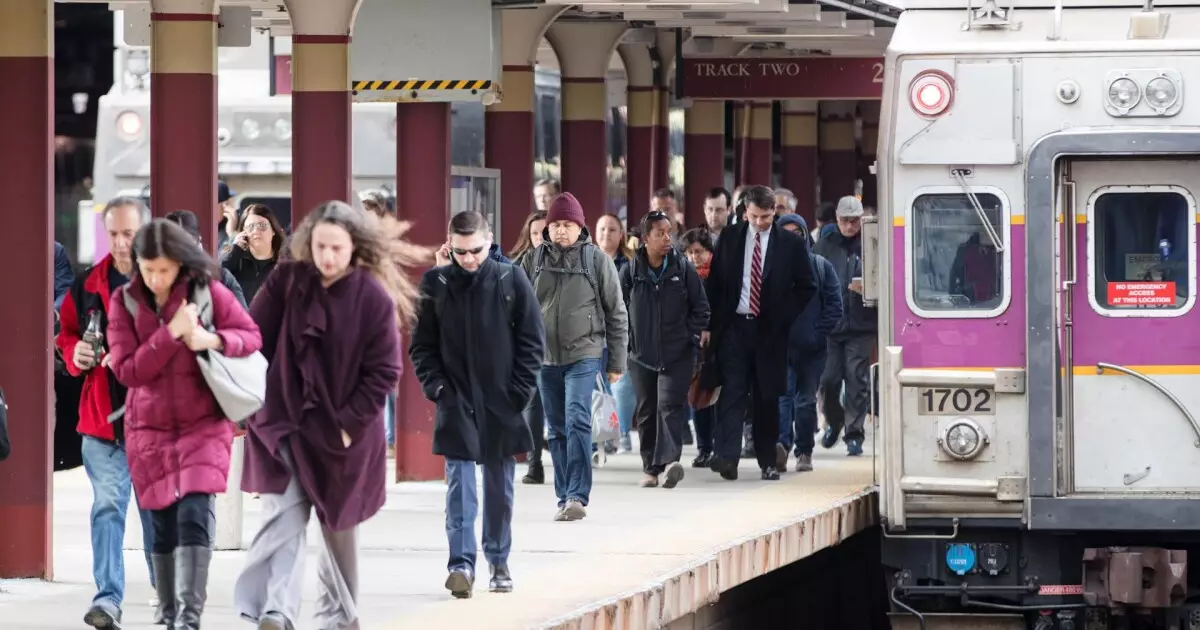Massachusetts is making a significant investment in its transportation infrastructure by planning to issue $490.7 million in municipal bonds. This strategic move aims to bolster the state’s commuter rail system and other pivotal transportation projects. With the bond pricing scheduled for a mid-week launch—following a retail order period—this financial initiative reflects a broader commitment to enhancing transit efficiency and accessibility in a state that has seen its transportation system wrestle with perennial challenges.
A Multifaceted Bond Structure
The scheduled bond issuance will be broken down into three distinct series: a $150 million revenue bond series aimed at the rail enhancement program, $125 million designated as sustainability bonds, and a robust $215.7 million in revenue refunding bonds. The sustainability bonds are particularly noteworthy, as they will directly finance the South Coast Rail Project. This initiative is tasked with restoring crucial commuter rail service that connects Boston with southeastern Massachusetts—a region that has historically lacked direct access to the city’s bustling core.
The ambition behind the South Coast Rail Project cannot be understated. As Phillip Eng, the General Manager and CEO of the Massachusetts Bay Transportation Authority (MBTA), articulated, there is a dedicated focus on quality and safety as this project progresses. His assertion underscores a firm commitment to providing a reliable rail service that communities can depend on—a challenge that has plagued the MBTA for decades.
Massachusetts’ commuter rail system has long struggled with unreliable service, a dilemma rooted in a combination of persistent funding shortages and the legacy of underwhelming post-pandemic ridership. The financial troubles facing the MBTA have been exacerbated by a heavy debt load, stemming from historical projects like the Big Dig, which remains the priciest highway endeavor in U.S. history. As the state moves ahead with its bond issuance, it faces the sobering reality of a projected budget deficit that could balloon to $900 million by fiscal year 2029.
In response, efforts have been ramped up at the legislative level to enhance efficiency in rail services. Governor Maura Healey has taken proactive measures by assembling a transportation funding task force aimed at crafting viable long-term financial solutions. Furthermore, there are ambitious plans to eliminate the slow zones that currently hamper the subway system serving the Greater Boston area, an initiative designed to streamline travel and enhance commuter experience.
Financial Outlook and Ratings
With the stakes this high, it is not surprising that the bond issuance has caught the eye of investment analysts. S&P Global Ratings has assigned a stellar AAA rating to the bonds, a testament to what they describe as “the commonwealth’s very strong economy, debt service coverage, and bond covenants.” Simultaneously, Kroll Bond Rating Agency has echoed this sentiment with a AAA rating, while Moody’s Ratings has rated the bonds at Aa1. These favorable ratings signal a robust financial outlook that reflects confidence in the state’s economic vitality and its strategic planning.
BofA Securities is set to lead the charge in managing this bond deal, with Omnicap playing a vital advisory role, and Locke Lord fulfilling the critical function of bond counsel. This coordination among financial entities signifies a well-organized approach to tackling Massachusetts’ transportation funding needs.
As Massachusetts embarks on this ambitious financial venture, the attention now shifts to the execution of the projects and their long-term impact on the state’s transportation landscape. The initiatives funded by these municipal bonds hold the promise of modernizing the commuter rail system and potentially alleviating long-standing issues that have hindered its reliability.
Investors and residents alike are hopeful that the funds from these bonds will catalyze necessary improvements and usher in a new era of efficient and dependable public transportation. Only time will tell if Massachusetts can navigate its complex financial hurdles and fully realize the potential of its transportation infrastructure, thereby enhancing the daily commute for countless individuals throughout the state.

